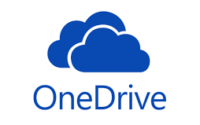Top 5 most Popular CI/CD platforms for large-scale VDI Deployment.

If you are managing a large-scale VDI infrastructure, it is advisable to employ comprehensive DevOps-based automation using the latest CI/CD toolset. This article aims to provide valuable insights for IT enterprises planning to introduce CI/CD tools into their daily VDI operations.
Lately, I have received numerous inquiries regarding the best CI/CD platform for deploying VDI infrastructure. In this article, I will summarize some of the most popular CI/CD platforms suitable for large-scale VDI deployment, maintenance, and operations.
Here are a few highly regarded CI/CD platforms:
- Azure DevOps: Azure DevOps is a cloud-based platform that provides a wide range of features for CI/CD, including build automation, test automation, and deployment. Azure DevOps also integrates with a wide range of other Microsoft products, such as Azure Pipelines, Azure Repos, and Azure Boards. This tool is very suitable if you are planning to use native AVD or Citrix Cloud with AVD deployment.
- Jenkins: Jenkins is an open-source CI/CD server that is popular for its flexibility and customizability. Jenkins can be used to automate a wide range of tasks, from building and testing software to deploying it to production. Jenkins with Ansible is a perfect combination for on-premises-based VDI deployment.
- CircleCI: CircleCI is a cloud-based CI/CD platform that is known for its speed and scalability. CircleCI can be used to automate the entire VDI deployment lifecycle, from code to production.
- Travis CI: Travis CI is a hosted CI/CD platform that is popular for its free tier. Travis CI can be used to automate the build and test process for AVD and Citrix Cloud with AVD as a resource layer.
- TeamCity: TeamCity is an integrated development environment (IDE) that includes a built-in CI/CD server. TeamCity is popular for its scalability and flexibility. It’s not very popular in the VDI world.
Here is a comparison of Azure DevOps with other CI/CD platforms:
| Feature | Azure DevOps | Jenkins | CircleCI | Travis CI | TeamCity |
| Cost | Pay-as-you-go | Free for open-source projects | Pay-as-you-go | Free for open-source projects | Pay-per-user |
| Scalability | Highly scalable | Scalable | Highly scalable | Scalable | Scalable |
| Flexibility | Highly flexible | Flexible | Flexible | Flexible | Flexible |
| Integrations | Integrates with Azure Pipelines, Azure Repos, and Azure Boards | Integrates with a wide range of third-party tools | Integrates with a wide range of third-party tools | Integrates with a wide range of third-party tools | Integrates with a wide range of third-party tools |
| Community | Large and active community | Large and active community | Large and active community | Large and active community | Large and active community |
Overall, Azure DevOps is a powerful CI/CD platform that offers a wide range of features, integrations, and a large and active community. However, it is important to consider your specific needs and requirements when choosing a CI/CD platform.
Here are some additional factors to consider when choosing a CI/CD platform:
- Your team’s size and experience: If you have a small team with limited CI/CD experience, a platform like Travis CI or CircleCI may be a good option. These platforms are easy to set up and use, and they offer a free tier for open-source projects.
- The size and complexity of your VDI infra: If you have large or complex VDI infrastructure, you may need a more powerful CI/CD platform like Azure DevOps or Jenkins. These platforms offer more features and flexibility, but they can be more complex to set up and use.
- Your budget: CI/CD platforms can range in price from free to thousands of dollars per month. It is important to choose a platform that fits your budget.
Apart from the mentioned tools, GitLab is another excellent option for deploying comprehensive DevOps-based automation with CI/CD for the VDI realm. I have personally used GitLab for end-to-end AVD infrastructure deployments.
That concludes today’s article, and I am confident it will assist you in selecting the appropriate CI/CD platform for your large-scale VDI deployment.


